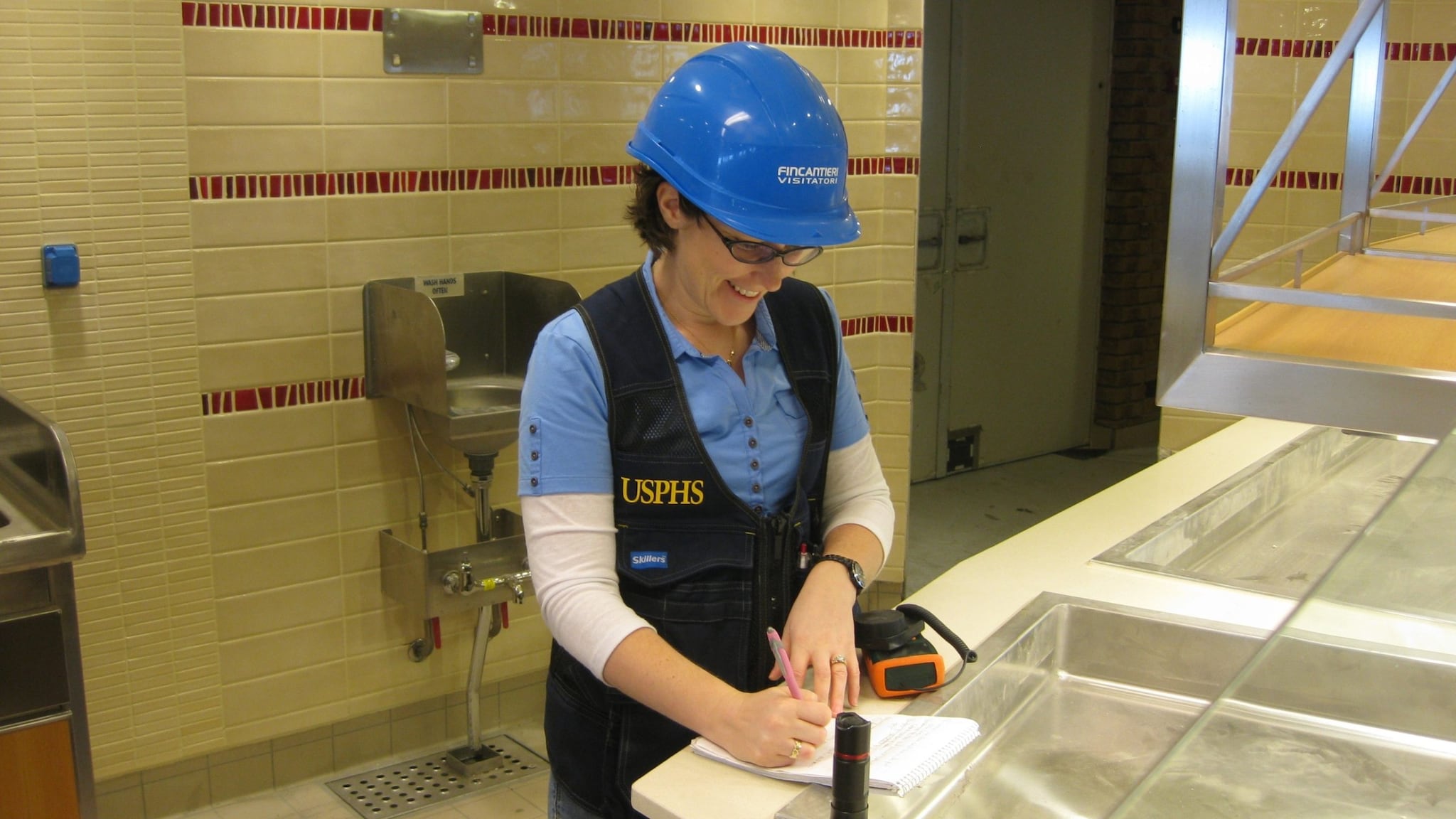Key points
Inspecting the construction of cruise ships is one of the core ways we help address public health issues onboard. We review ship construction plans for compliance with our public health design standards.

Requesting reviews and inspections
Ship owners or shipyards that build or renovate cruise ships can request the following:
- Plan and equipment reviews.
- Onsite shipyard construction inspections.
- Final construction inspections of new or renovated vessels before their first or next operational inspection.
Steps to request reviews and inspections
- Submit your official written request to our Vessel Sanitation Program (VSP) Chief at vsp@cdc.gov.
- Make your request more than 45 days before the desired date(s).
- We encourage requests be made as early as possible in the planning, construction, or renovation process.
- We encourage requests be made as early as possible in the planning, construction, or renovation process.
We honor requests depending on staff availability.
At least one representative qualified to answer questions and empowered to make corrections, additions, or deletions must attend plan reviews and construction-related inspections. Consult the VSP Construction Guidelines for more information.
Cost
Ship owners pay a fee based on the ship's size for onsite construction and renovation inspections. The fee for this inspection is higher than the fee for operational inspections or reinspections. This is because construction-related inspections typically last several days instead of 1 day.
VSP does not charge a fee for plan reviews or consultations related to renovations or new cruise ships.
Fee schedule, October 13, 2024-September 30, 2025
| Vessel Size (GT) | Inspection Fee (US$) |
|---|---|
| Tier 1 (<30,000 GT) | $16,146 |
| Tier 2 (30,001-110,000 GT) | $32,292 |
| Tier 3 (110,001-180,000 GT) | $64,584 |
| Tier 4 (>180,001 GT) | $129,168 |
GT=gross tonnage in cubic feet, as shown in Lloyd's Register of Shipping.
Construction and renovation inspections require at least twice the amount of time as operations inspections, so they are charged double the rates.
The fee schedule is also posted in the Federal Register.
Plan reviews
We analyze the ship design and make suggestions to reduce health risks and promote healthier environments. Our construction plan reviews are based on the current VSP Construction Guidelines. We generally focus on five areas.
- Equipment and facilities: Standards, parts, and placements and hygiene requirements.
- Food areas: Buffet lines, galleys, provision rooms, refrigerators, bar areas, and dining rooms.
- Warewashing and waste management: Proper setup and handling.
- Swimming pools and spas: Drains, pumps, filters, safety, and disinfection.
- Water systems: Bunkering, storage, distribution, disinfection, and cross-connections/backflow prevention.
Equipment reviews
Important to know
The VSP Construction Guidelines establish standards for equipment and materials installed on cruise vessels. We grant cruise line requests for equipment reviews depending on staff availability. Submit an official written request to the VSP Chief at vsp@cdc.gov to request reviews.
Equipment manufacturers and suppliers should not contact VSP to request approval of their products.
About the Construction Guidelines
Sharing guidelines since 1997
It's an important to note that ship owners and operators select ship design and equipment that best meet their needs. However, the selected design and equipment must also meet VSP's sanitary design criteria standards and routine operational inspection requirements.
- The National Sanitation Foundation (NSF), Underwriter's Laboratories (UL), the American National Standards Institute (ANSI), and other recognized independent international testing institutions.
